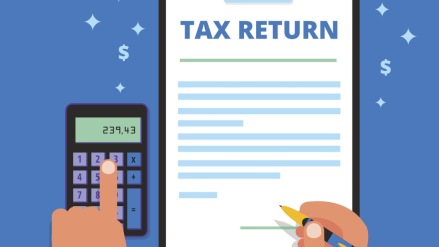With stricter validation checks and evolving tax return formats, a growing number of taxpayers across India are facing issues related to incorrect or incomplete Income Tax Return (ITR) filings. The consequence? A spike in ‘defective return’ notices under Section 139(9) of the Income Tax Act, leading to refund delays, penalties, and in some cases, returns being declared invalid.
In earlier years, any capital gains—whether taxable or exempt—made you ineligible to file ITR-1. Under the updated rules, you can now file ITR-1 if your only capital gains are modest (up to ₹1.25 lakh) from stocks or equity mutual funds and you have no carry-forward losses. However, if your capital gains exceed ₹1.25 lakh, filing ITR-1 will make your return invalid.
Such cases are promptly flagged by the tax department and a notice is issued, typically granting the taxpayer 15 days to rectify the error.
What Happens If You Don’t Act?
Failure to respond or correct the errors within the given timeframe can result in the return being treated as not filed at all. This can not only invite penalties but also cause indefinite delays in processing refunds.
Here’s How to Fix It in 5 Simple Steps
1. File a Revised Return
If the original return hasn’t been processed yet, taxpayers can file a revised return under Section 139(5). This involves logging into the I-T portal, choosing ‘Revised Return’, and correcting the mistake using the appropriate ITR form.
2. E-Verify Without Delay
Every revised return must be e-verified within 30 days, either through Aadhaar OTP, net banking, or a digital signature. Missing this step renders the return invalid.
3. Rectify If Already Processed
If the return has already been processed, one can still request rectification under Section 154 through the portal’s ‘Rectification’ tab to amend minor errors.
4. Meet All Deadlines
Revised or rectified returns must be submitted before the end of the assessment year (i.e., March 31, 2026, for FY 2024-25) or before the original return is processed—whichever is earlier.
5. Respond to Notices Promptly
If you receive a notice under Section 139(9), acknowledge and act on it swiftly. Extensions can also be requested online if more time is needed.
When in Doubt, Consult a Professional
For complex scenarios—such as foreign assets, capital gains, or changes in income type—it’s always advisable to consult a chartered accountant or tax expert to avoid filing errors.
Acting promptly can not only prevent unwanted legal and financial implications but also ensure you receive your tax refund without unnecessary delays.
